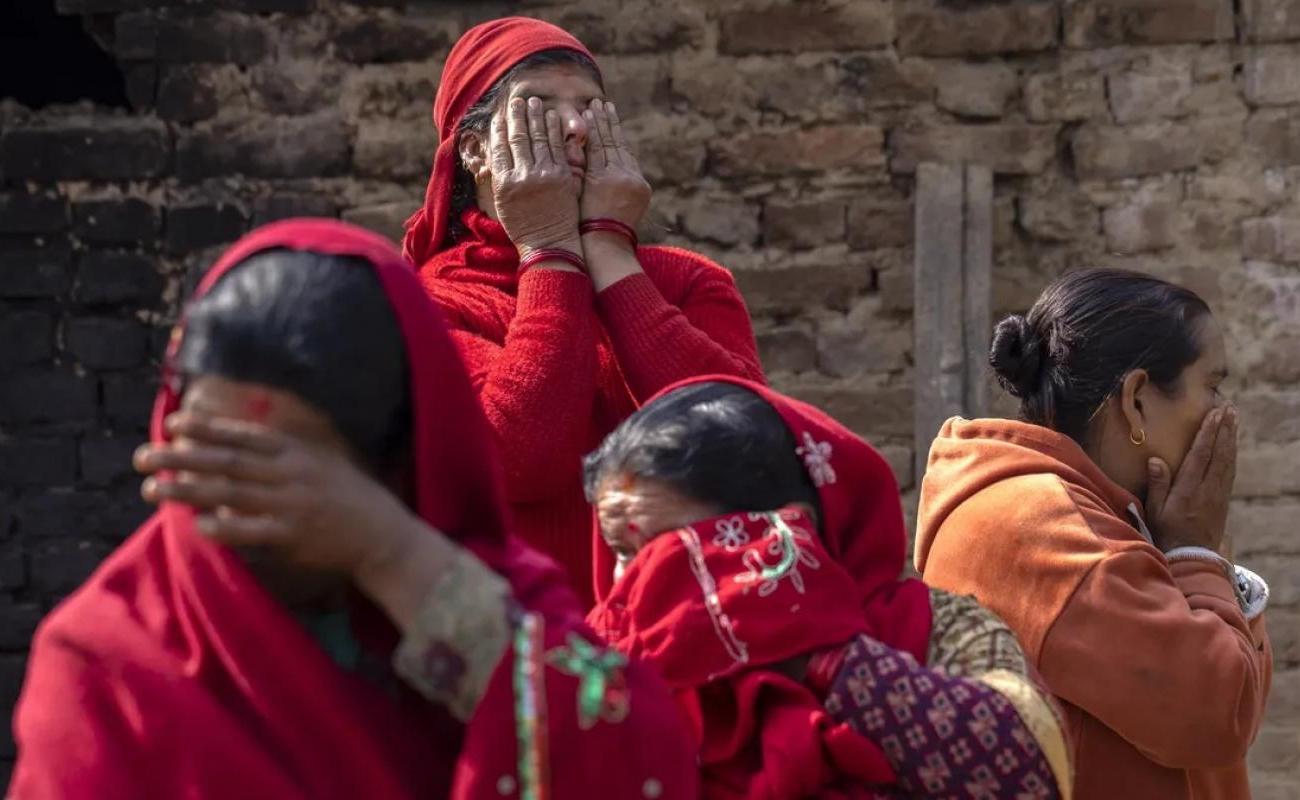Russian roulette
Novaya Europe investigates how impoverished Nepalis are being unscrupulously lured into fighting for the Russian army in Ukraine

One autumn morning in 2023, a young Nepali man by the name of Bista Prakash sat cross-legged at his home altar. Nearby, his parents were preparing for puja, one of the major Hindu rituals of worship. Offerings of mangoes, bananas, and a few hundred rupee notes lay before an image of Shiva and a statue of Ganesh decorated with a necklace of marigolds that Prakash’s mother had made the day before. Prakash looked around the room in a daze, his ears ringing, his thoughts a mess. He still couldn’t believe that he had managed to escape from Russia.
That morning, deities Shiva and Ganesh received a rather unusual prayer from the Prakash family. They asked the gods to cleanse Bista’s karma of the murders he had committed and help him forget all about it. Only weeks earlier, the 25-year-old was fighting in the Russian army and killing Ukrainians. He didn’t even know how many people he had killed, estimating the figure to be between 10 and 50. After completing the ritual, he rose to his feet in full confidence that his karma was now clean. Truth be told, Prakash did not suffer from pangs of consciousness. But his war wounds, the nightmares, and the fear that his Russian commanders would find him and drag him back to the front line, continued to torment him until the day in May when we met.
Prakash meets me at a bus stop and takes me for a long walk back to his home — a rented room on the outskirts of Kathmandu. He is wearing black sweatpants and a blue sports jumper. He limps heavily on his right leg and speaks quietly, barely moving his lips.
The room, which costs €34 a month, is Prakash’s home while he undergoes treatment at the nearby hospital for injuries he sustained fighting another country’s war. Though the Russian authorities promised him a significant financial reward, Prakash has not seen most of that money and his brother helps him pay for his accommodation.
Prakash lives on the ground floor of a grey concrete house — in a tiny, dimly lit room with an old bed, a table, a chair, and a two-plate electric hob. There’s only one shower for three floors. The communal restroom, similar to those at gas stations, is just opposite his room.
Prakash grew up in a poor family in the small town of Dailekh. His mother is a housekeeper, while his father was always seeking work in town, accepting whatever jobs he could find. Oftentimes, he found nothing.
Landlocked between India and China, Nepal is one of the poorest countries in South Asia. Its population currently exceeds 31 million and continues to grow — and with it grows the unemployment rate.
Prakash decided to go to Russia for a “change of scenery” after a prolonged depression — his wife had committed suicide just six months after their marriage, and he never understood why.
“For months after that, I hardly ate and just cried all day long, unable to get out of bed,” he says.
One of his cousins had gone to Russia seven years earlier and got a degree from a Moscow university and then a job at tech giant Yandex. Prakash decided to follow in his footsteps. He took a high-interest loan from a local moneylender and paid an “agent” 1 million Nepalese rupees (almost €6,800) to help him secure a Russian visa, pay the necessary fees, and buy plane tickets.
After arriving in Russia in June 2023, Prakash shared a one-room flat with seven other Nepalis he had met on WhatsApp the previous day. He was required to study Russian for a year before enrolling in the department he was interested in. To pay off his debts and fund his accommodation and studies in Moscow, Prakash planned to get a job, but soon discovered that his type of visa did not permit him to work in Russia.
He got a cash-in-hand job scanning goods in the warehouse of a large online retailer. However, at the end of his first month there, his employers refused to pay him, and then soon afterwards, their flat was raided by the police and the Nepalis were arrested for not being registered to live in Moscow.
“We were terribly scared,” says Prakash. “The police treated us like cattle.”
After spending a night in prison, they were told to bribe one of the policemen — 5,000 rubles (€50) each. They paid. That was also when Prakash started receiving calls from his loan shark demanding that he pay back the debt. His panic was growing.
